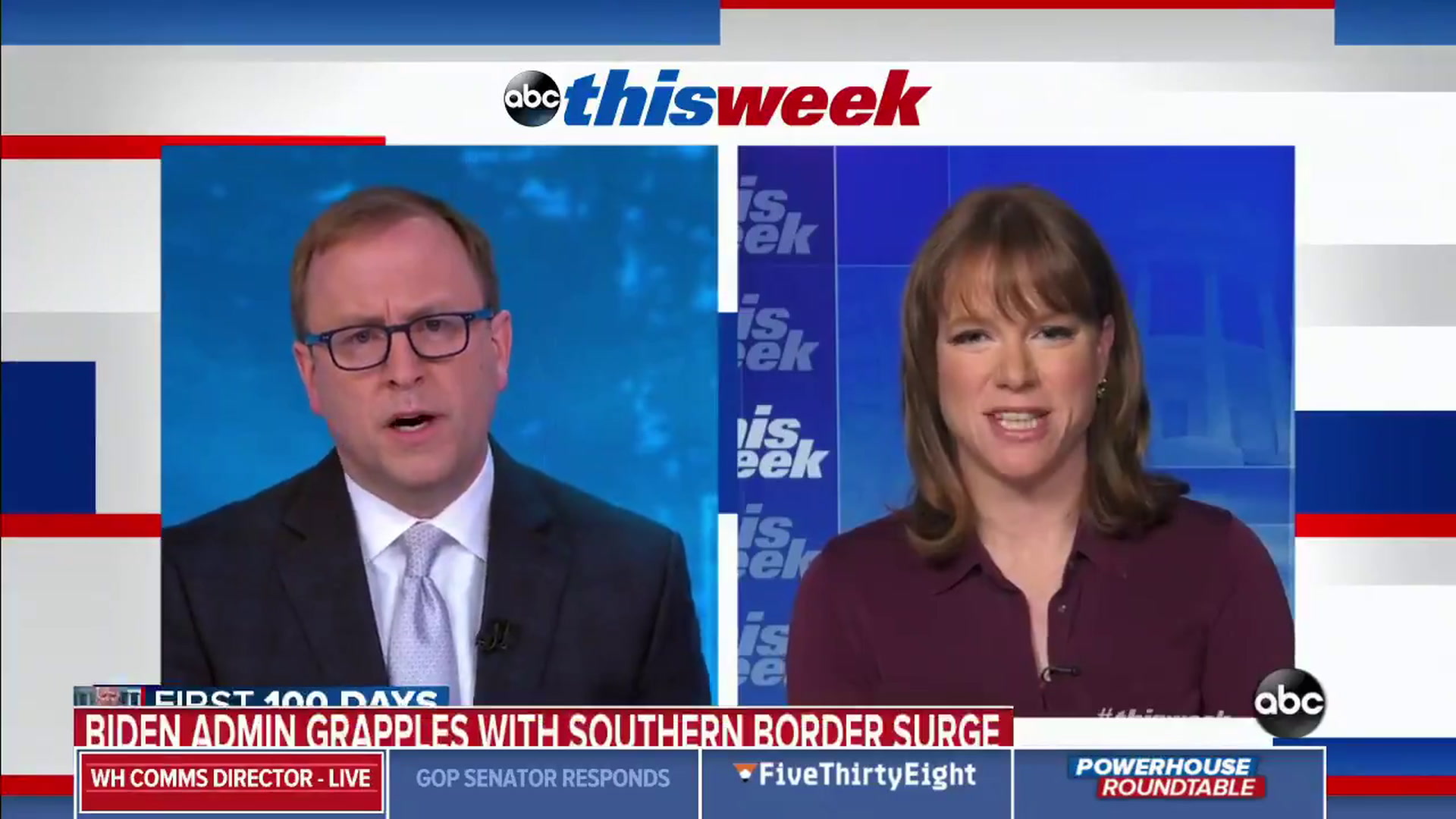
White House Communications Director Kate Bedingfield told ABC's "This Week" that the Biden administration is strengthening diplomatic efforts in the Northern Triangle of Central America to address the "root causes of migration" and discourage migrants from coming to the U.S.
Why it matters: There is now a record number of unaccompanied minors in U.S. custody, and the number is set to increase in the coming season. Documents leaked to Axios last week show that children have been held in border patrol custody for over 10 days in facilities not meant to house kids for more than three days.
What they're saying: Bedingfield argued that the surge in immigrants arriving at the border is "cyclical" and "not the result of one administration's policies," but of a lack of resources in the countries where people are emigrating from. The Department of Homeland Security said earlier this month that the U.S. is on-pace to encounter more people at the border "than we have in the last 20 years."
- "Ultimately, what we need to do is address the root causes of migration. It's something President Biden did when he was vice president." Bedingfield said Sunday.
- "He spent time in the Northern Triangle countries that people are migrating from, working to try to address the lack of infrastructure, the lack of programs like, for example, Girls and Boys Clubs, that allow these kids to be somewhere safe in their home country."
- "You saw last week he asked Vice President Harris to take on dealing with the work and the diplomacy that's necessary in the Northern Triangle to prevent people from making this journey in the first place — that's the most important thing we can do to try to stem the tide."
Worth noting: "Our policy hasn't changed," Bedingfield added. "The vast majority of people who arrive at our border we're turning away under Title 42, a health code that allows us to turn people away in this period of COVID."
- Biden has stressed that the administration isn't applying Title 42 to unaccompanied minors.



